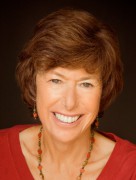 The Arizona general election will be held on November 6, 2012, with early voting starting today. After the many recent legislative challenges to reproductive health care access, both nationally and statewide, the importance of voting in November can’t be overstated. To help voters, Planned Parenthood Advocates of Arizona has endorsed candidates who have shown strong commitment to reproductive health and freedom. Along with those endorsements, we are spotlighting our endorsed candidates in a series called “Meet Our Candidates.” Make your voice heard in 2012!
The Arizona general election will be held on November 6, 2012, with early voting starting today. After the many recent legislative challenges to reproductive health care access, both nationally and statewide, the importance of voting in November can’t be overstated. To help voters, Planned Parenthood Advocates of Arizona has endorsed candidates who have shown strong commitment to reproductive health and freedom. Along with those endorsements, we are spotlighting our endorsed candidates in a series called “Meet Our Candidates.” Make your voice heard in 2012!
On her campaign website, Angela LeFevre describes herself as “a broad-minded Democrat who’s been involved in politics all [her] life.” In fact, she graduated from the London School of Economics and Political Science with a degree in economics and international relations. She’s worked on a number of social and political causes throughout the United States, the most recent being as president of the board of Democrats of the Red Rocks (DORR), a position she held until she resigned to seek election to the Arizona House of Representatives.
“When circumstances arise and a woman is faced with a difficult choice, government has no place in making that decision for her.”
LeFevre is running as a candidate in the new Legislative District 6, an area of substantial scope, both in geography and in diversity of constituents. It extends north of Sedona and Flagstaff to the edge of Grand Canyon National Park, south past Payson and into areas of the Tonto National Forest, and east to Heber-Overgard and the Sitgreaves National Forest.
LeFevre took the time for an interview with Planned Parenthood Advocates of Arizona on October 9, 2012.
Tell us a little bit about your background.
I was born in Leeds, England and earned a degree in economics and international relations from the London School of Economics. I immigrated to the United States in 1981 after having spent a year in Iowa as a foreign student in 1967. I knew I would come back here to live. I taught fourth grade in a New Orleans public school where my two children were students. I also started a small telecommunications business, which required hiring employees. From that I moved into the corporate world in senior management for Qwest Communications for 14 years. That meant living in Denver, Colorado, where I became active with the Democratic Party.
My life experience provides me with the skills and knowledge base to address the most crucial issues in Arizona today: the economy, jobs, and education. I have been a consistently strong advocate for women and will remain so when elected. In the past I worked on behalf of other political candidates, especially women, volunteered many hours working with disadvantaged teens both here and in Colorado. My reasons for running are many but mainly, I believe Arizona is on the wrong track, that our legislature has not represented Arizona’s citizens.
In the previous legislative session, there were a lot of bad bills that negatively affected access to birth control (HB2625), funding for family planning (HB2800), abortion (HB2036), and unbiased information about unintended pregnancies in public schools (SB1009). What kind of beneficial legislation would you like to see introduced, and why do you think it’s important to fight for it?
The legislature has been putting the cart before the horse regarding these issues. No one wants an abortion. The best way to avoid that unfortunate possibility is to educate our young people using accurate, science-based sex education in our public schools and appropriately funding family planning and affordable birth control using those methods that work best for the individual. When unprotected or forced sexual acts occur or when birth control efforts fail, we should stand by women by offering emergency contraception. Roe v. Wade is the law and, as a legislator, I will support the law. I will also do whatever I can to ensure that Planned Parenthood receive[s] full funding and that its vital contribution to health care as a whole in rural Arizona is recognized. Continue reading →
“I was treated for chlamydia, but my girlfriend feels fine, so she doesn’t need to get tested.”